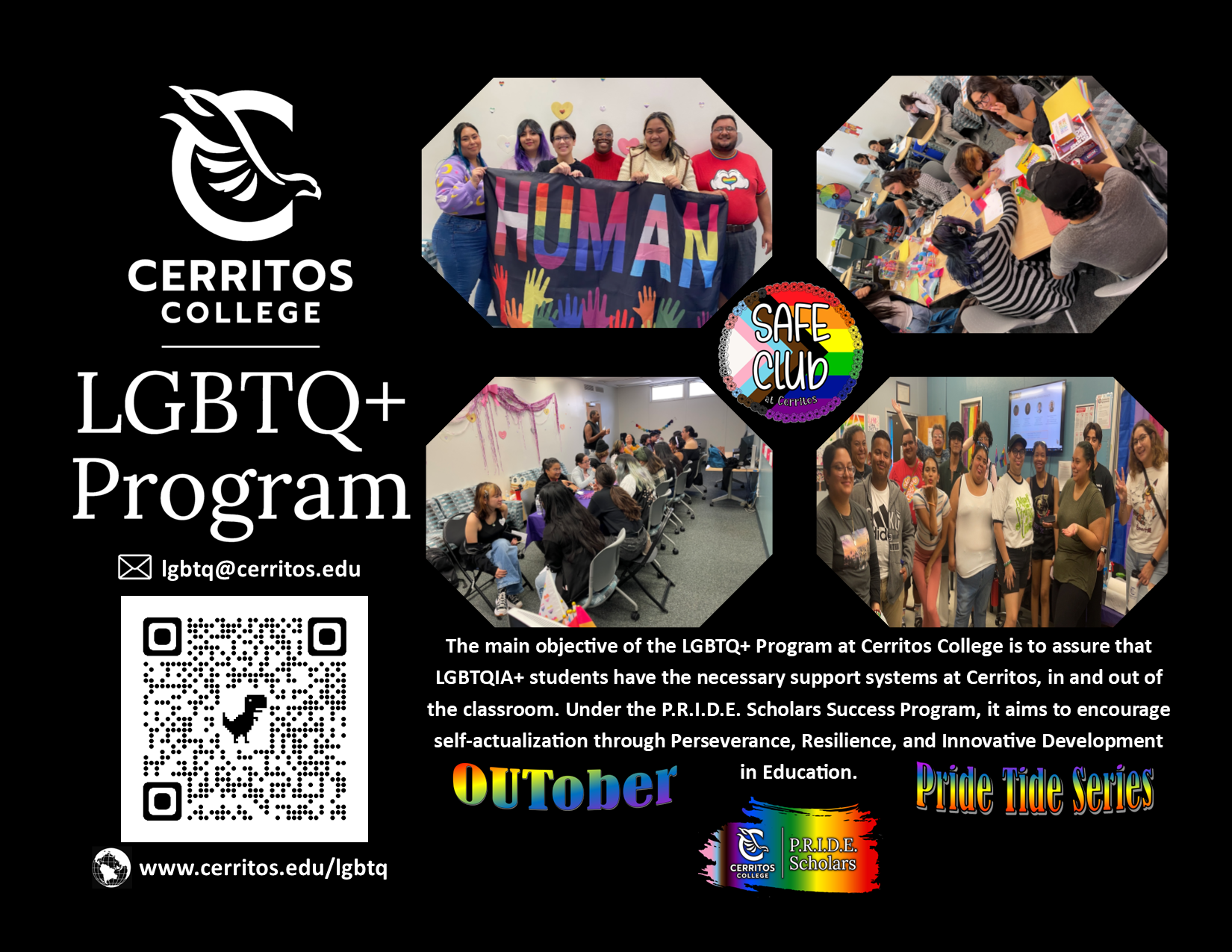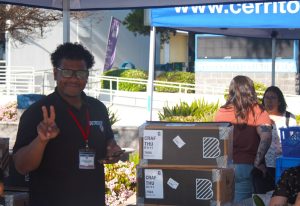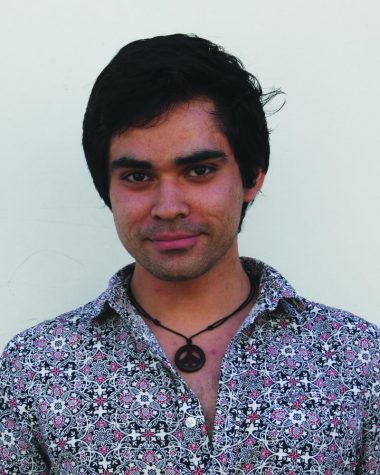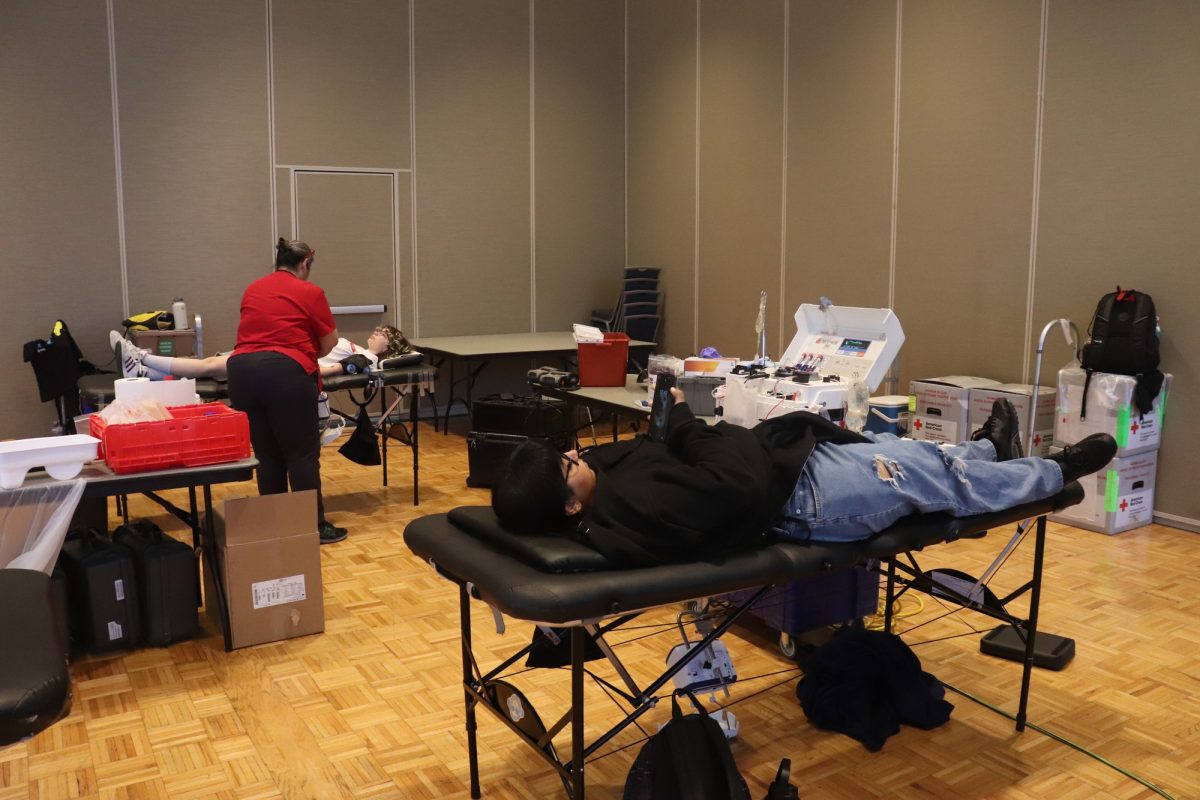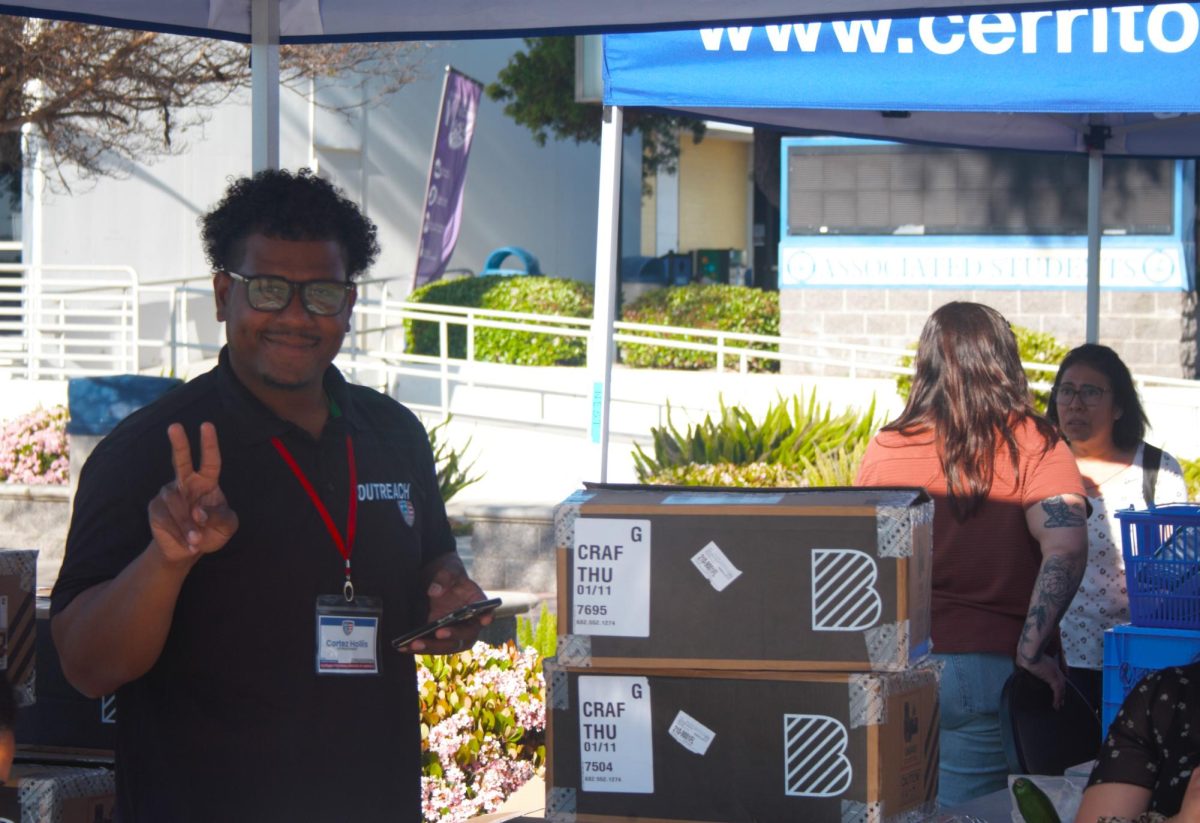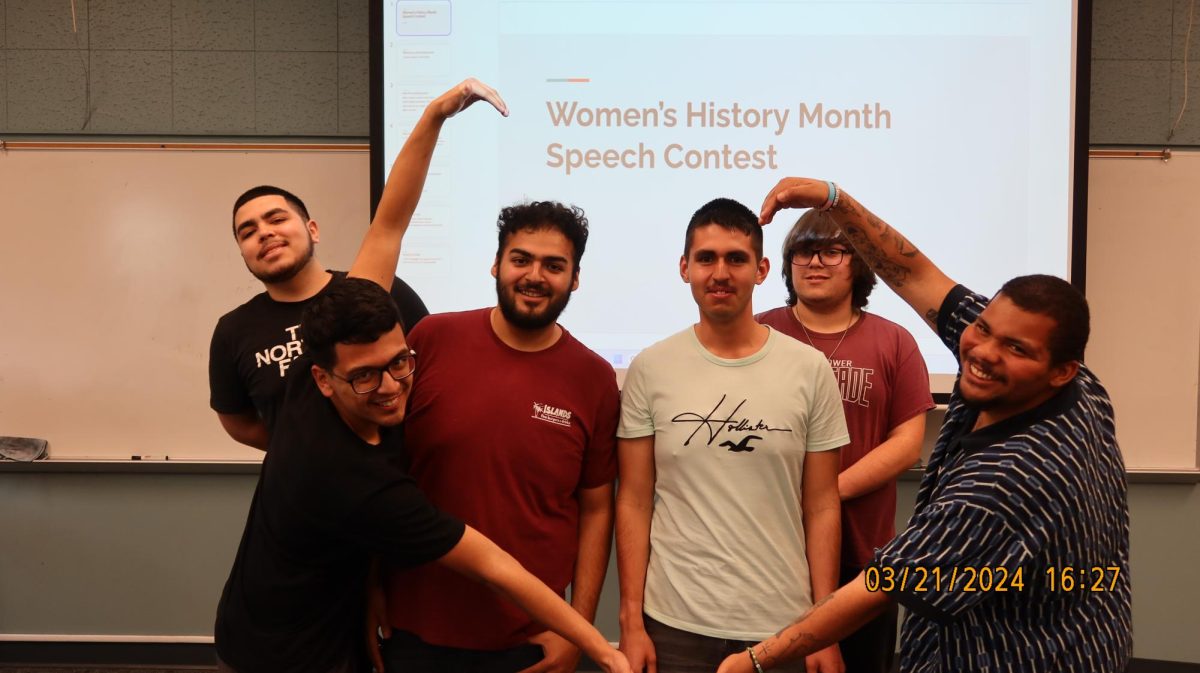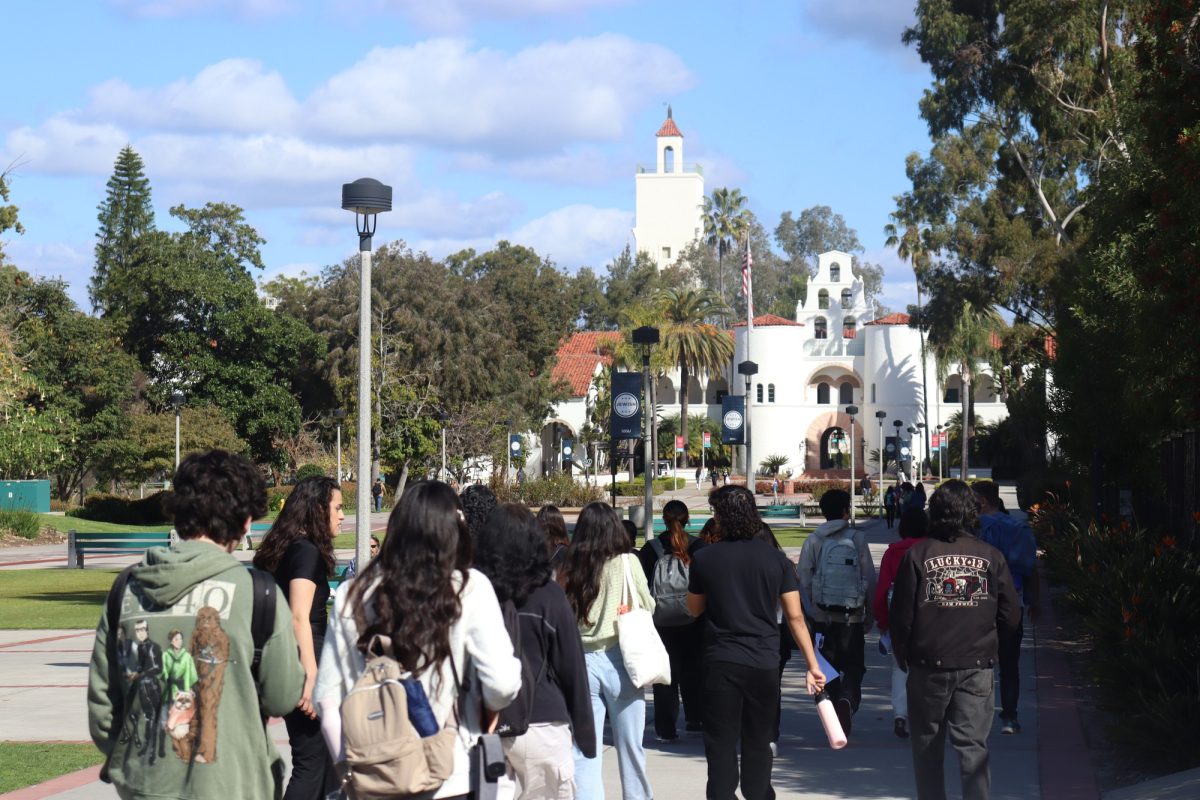Success. Growth. Innovation. Understanding. Kindness. Love. Inclusiveness. Talent. Altruism. All these ideas were the central themes of the “first of many TEDx Talks,” as President Jose Fierro said.
Fierro hosted the Technology, Entertainment and Design x event, held on Thursday, March 9, in the new lecture hall of the Fine Arts Building.
First up was “Three steps to a healthy successful life” presented by faculty specialist Irving Bartikofsky.
He said that the first of the three is to pursue your passion, because the greatest thing people regret is “living a life that someone else prescribed for them.”
The second is to build relationships because the happiness of a life is measured in the the quality of the relationships one has, and you could save a life by connecting with someone.
The third step, Bartikofsky said, is to be grateful. He explained: “You know you’re special. No one […] will have the same fingerprints as you. You and I can look out the same window and have a different perspective, and that’s a good thing.”
The next speaker was reading instructor Erin Cole who explained “Why [she is] not afraid young adult literature to college students,” as her title said.
Cole started by saying that classic texts deserve to be read by readers who are prepared to enjoy them, but texts such as Hamlet discourage beginning readers.
She finished by saying that, contrary to the popular opinion of English teachers, young adult novels can speak to the reader in a way that the reader can relate to and that they can indeed lead the reader to think critically.
For a change in subject, community member Steven Palacios spoke third, on the subject of a sort of artificial intelligence he engineered called “cyberkins” and the interactive advantages that such technology offers; among which were automated critical thinking on the part of the “cyberkins” in forum discussions.
After his presentation, Palacios said that his inspiration for the TEDx Talk was the realization that “chatbots have educational advantages to offer such as hearing different opinions, critical thinking, and safety from information overload.”
Lance Kayser, English instructor, was fourth in the line-up; giving his presentation on “Addressing the needs of hidden identities.”
He started with the fact that “most students are dealing with a complex set of issues as they go to school,” and explained that there are three tips, which he has learned from experience, to be an inclusive instructor: address implicit biases, use inclusive language (e.g. pronouns, marital status, abilities, etc.) and assign inclusive curriculum (e.g. having students read novels with a wide demographic of characters).
After his talk, he said that his presentation was to help people understand what students might be going through that might not be obvious, and how to empower them.
Fifth was Cypress College faculty member Jenna Larson whose message was that if you have something nice to say you should “Say it out loud.”
For a year, she gave compliments to strangers and learned that, because doing so will already be awkward, the compliments you give do not have to be based on appearance.
The least expected compliments are the most appreciated; and a simple compliment is never insignificant.
During her TEDx Talk she mentioned that giving someone an unexpected compliment could persuade them from committing suicide.
After Larson was Center for Teaching Excellence coordinator David Betancourt with “Teachers need love too,” and went on to explain that he wants to help new faculty members any way that he can and that the school needs to rethink how it does just that.
During the presentation he showed photo of rolls of toilet paper and said “don’t get me wrong, it’s just that maybe the forms can be more useful a different way,” referring to the teacher evaluation form which he described as being like a math test.
He concluded with the rhetorical question: “Why not be brave enough to say that we can recognize improvement?”
Elementary school teacher Renee Roberts said “a bunch of teenage boys in speedos, all on my path toward inclusiveness,” commenting on the experience of not being allowed to be in a regular P.E. class in high school, because she had complications due to cerebral palsy, and finding herself in a swimming class.
Her presentation was titled “Inclusive education in the mirror of my mind” and the central topic was that disabled students deserve to be educated alongside their able-bodied peers, and the standards of education must be regulated with disabled people in mind.
“Change of our education system makes people afraid,” Roberts said and finished with what her students advised her to tell the audience of the event, “tell them we are not afraid of each other.”
Eighth on the panel was Geraldo Franco with “Overlap disciplines for a competitive advantage.”
The talk was primarily dedicated to students who have to make career options soon. He started his presentation saying that everyone is born with a natural talent, but some people ignore it.
Early on, “innate skills come out naturally. Make career choices based on your strengths.” He advised the audience to apply what you’re good at in your occupation, even if you think it is not related.
He gave an anecdote, saying that everyone said that art and engineering are two separate worlds that don’t cross over; and went more in depth about how his artistic abilities helped him with design in an engineering internship.
After his talk, Franco said: “If you’re good at something don’t throw it out.”
Closing the night was women’s and gender studies and Philosophy Adjunct Instructor Kim Berling talking about effective altruism.
Her goal was to talk about teaching altruism in class and the changes her students experienced, then tie that into Compassion in action, which is a club on campus that does charitable acts such as fill food pantries and feed students throughout finals week.
After her talk, Berling talked about her students saying that “they have said that they feel a deep level of personal empowerment” and better about themselves, because “there is something about helping others that makes them feel like they are worth while.”
At the very beginning, Fierro made an announcement saying that the speakers the audience would hear from tonight will be entered into TED, to be possibly picked to speak at a larger and more formal TED event.
Because of the rules in place for TEDx, photography of any kind during the presentations was prohibited — and posting picture to social media (such as Instagram or twitter, for instance) could get the speakers disqualified for the TED selection process.
After that, a short video was played; it had a message to the audience at the end, saying: “The more you enter into [the presentations], the more you take out.”

